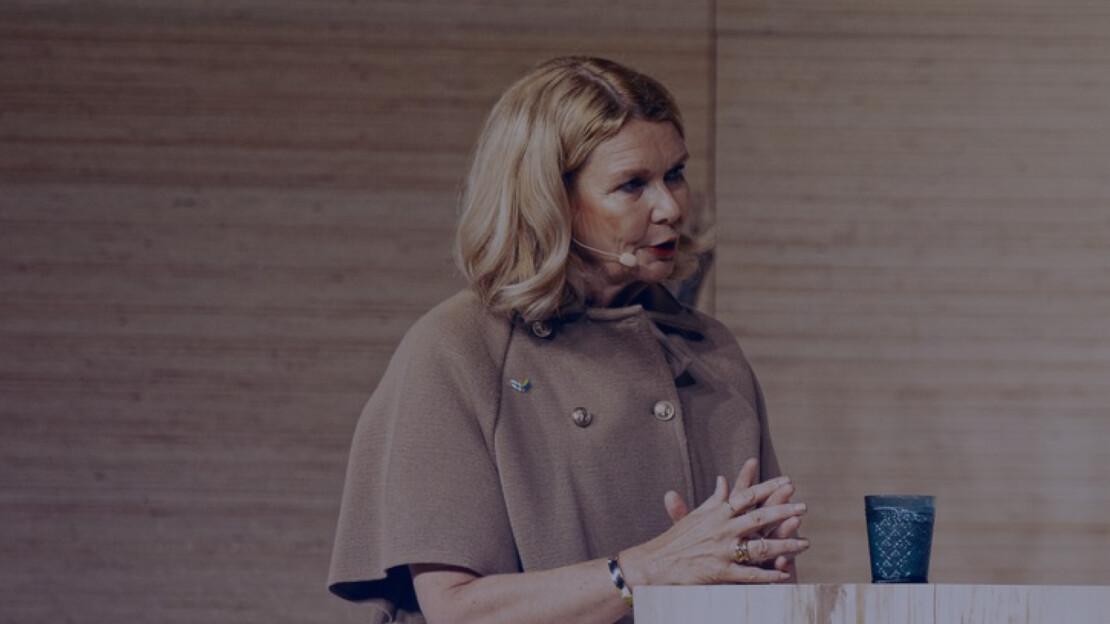6May2024
Sanna Suvanto-Harsaae has been honored as Finland’s most influential woman in business for seven consecutive years. Currently, Sanna chairs the boards of Finnair, Orthex, Posti Group, and BoConcept, guiding these organizations towards sustained success and innovation. Her vast experience in CEO and Executive Team effectiveness makes her a sought-after expert, inspiring leaders worldwide.
We reached out to Sanna to get her insights on the best leadership practices, current leadership challenges, and tips for leadership development. Here’s what we found out!
Most Critical Qualities of a CEO
We kicked off by examining the most essential qualities for a CEO and their executive team in today’s rapidly evolving business landscape. First, Sanna emphasized that a CEO should always have the ability to lead people, but also manage the issues at hand.
“A great CEO needs to have both great knowledge-based skills and interpersonal skills.”
She also argued that to lead people, a CEO needs to know how to be their true selves. “It all starts with authenticity, be who you truly are. As the saying goes: ‘Who you are shouts so loud, I cannot hear what you say’.”
Additionally, Sanna believes that in the world we live in today, CEOs are required to be caring, yet not nice. “There is a big difference between being caring and being nice. Nice is not taking conflicts or difficult discussions. Caring is about taking ALSO the tough discussion.”
When it comes to managing issues, Sanna highlights the importance of analytical skills and decision-making skills. “The key is to have a good analytical skill set and be able to draw conclusions to make the needed decisions. We will never have all the facts, so meta-level decision-making is needed.”
Same Leadership Challenges (and Opportunities) across Industires
Sanna chairs multiple boards across different industries and cultures. How does she navigate the unique challenges in each organization?
“This will sound close to arrogant, yet the biggest surprise has been that there’s “same shit everywhere”. What I mean by that is that 70-80% of problems are the same across industries. The remaining 20-30% are then industry specific. People’s challenges, growth, innovation, effectiveness etc. are present in all companies.”
As the problems are similar, Sanna feels that also the determining factors for success are alike. She also offers her ideas on what some of those factors are:
“Surprisingly the same theme goes through on what builds on success. It all starts by analyzing and understanding where the company earns money (customers, products) and how to ”produce” better (innovation) and more effectively. Yet the key magical words are, organization built on self leadership, military-like focus on doing what really matters (parking rest to wait) and ensuring energy across organization.”
The Key to Leadership Development
As the operating environment changes, leaders need to adjust as well. This makes leadership development a crucial aspect of an organization’s long-term success. Sanna suggested that self-leadership is actually the key starting point that should be part of business studies:
“We should mandate a course on self-leadership already in universities. All leadership starts by taking responsibility and leading oneself. As self-leadership is not taught elsewhere, companies need to do it.”
Sanna also underlined that in order for a company to have talented and qualified leaders in the future, they need to put emphasis on the people who might become the leaders in the future. This includes trying to inspire and nurture talent continuously.
“Only if you teach the skills needed in lower levels in an organization can it build on internal talent. Same time, we need to keep the curiosity of learning throughout our careers and even to retirement.”
Building and Leading Diverse Teams
In many companies, the teams are becoming more and more diverse and multinational. How can leaders ensure cohesion and effectiveness across cultural contexts? Sanna reminded us that each diverse team consists of individuals, and that’s what leaders should focus on:
“We need to meet each individual as who they are. The issue here is that we all have biases about people, habits, and things different from our own. Some of the biases we are aware of, but many that we are not. The key here lies in becoming aware of the biases we have to then be able to avoid them.”
Sanna also emphasized that each organization should make sure to have zero tolerance for discrimination, and make sure that this principle is applied in practice: “In organizations, there needs to be a total no bullying or discrimination policy—and action on it. Consequently.”
Courageous Equals Making Tough Decisions
Courageous Leadership is the main theme of Nordic Business Forum 2024. As Sanna will also step on our stage in September, we wanted to know what courageous leadership means to her:
“Braveness—and it is up to you individually. A bit provocatively said: everybody can become a better leader, yet world-class leadership is not for the faint ones. Leadership is all about making and taking difficult decisions. Everyday. In both private and business lives.”

 by:
by: 

